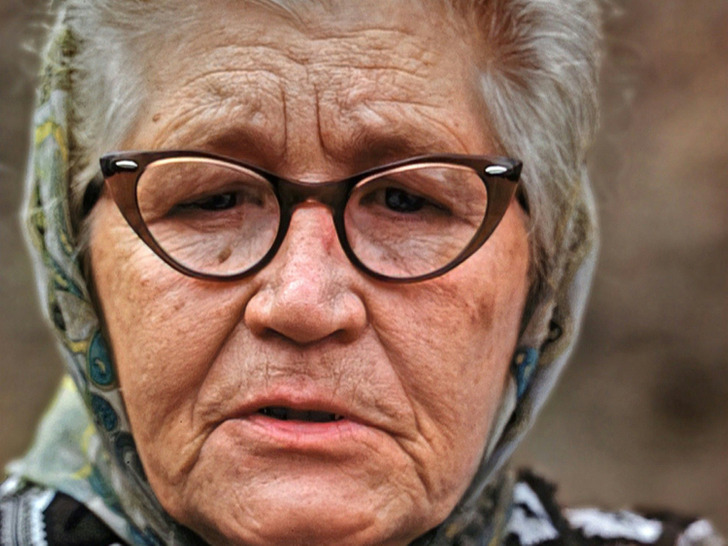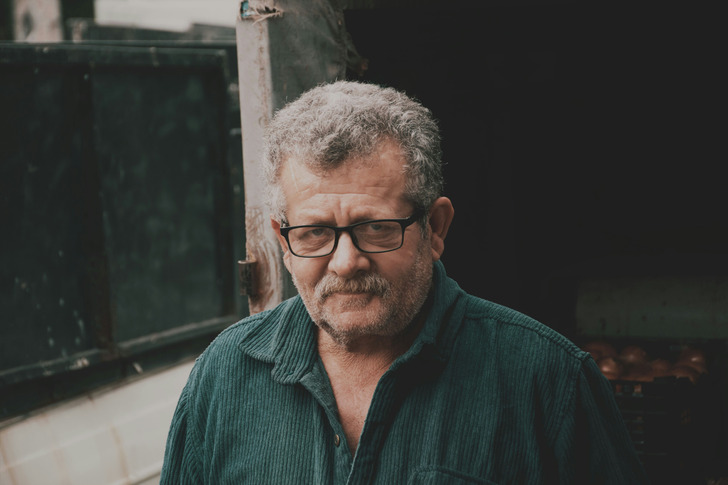RUN
I Refuse to Let My Aging Parents Move in With Me — My House Isn’t a Retirement Home
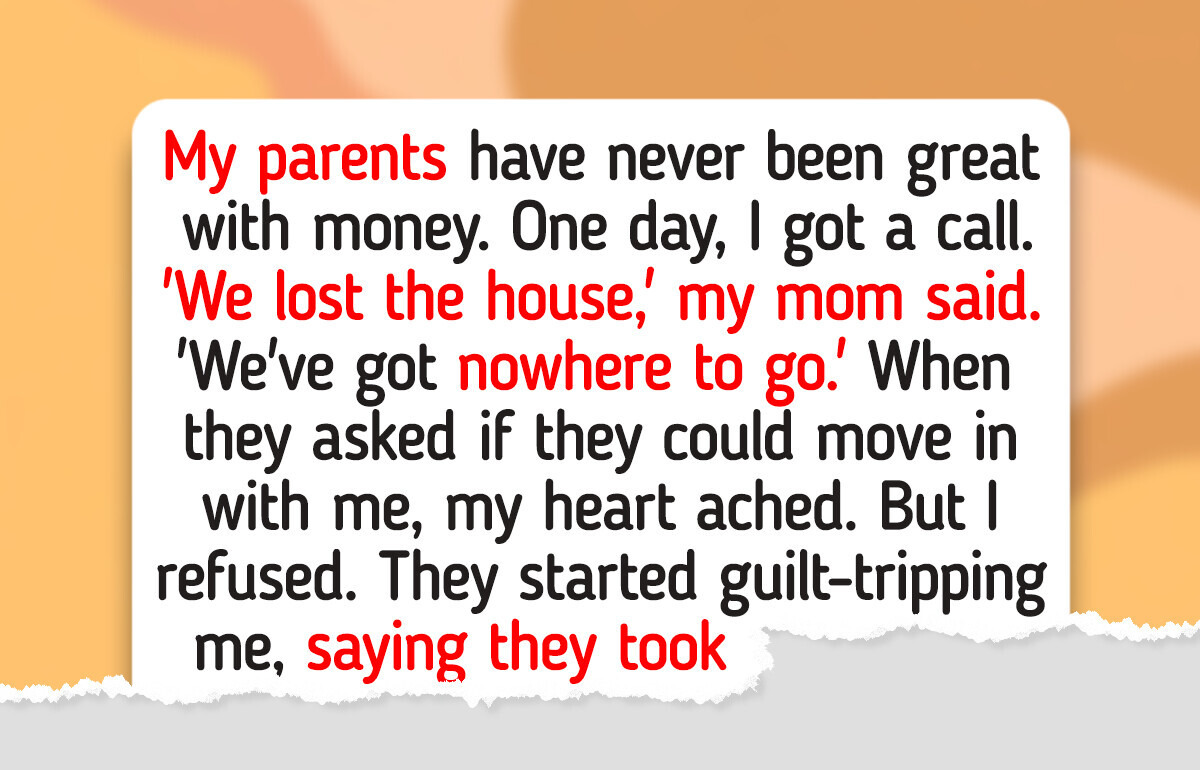
When aging parents lose everything, adult children often feel the pressure to sacrifice it all. One woman wrote to us after refusing to let her parents move in, sparking guilt, family backlash, and a deep internal struggle. Now, she’s torn between loyalty and self-preservation.
Maya sent us a letter.
Hi Bright Side,
I never imagined I’d be in a situation like this. My parents have always struggled with finances and poor decision-making, but when I got the call from my mom saying, “We lost the house, we’ve got nowhere to go,” my heart still dropped. They had no place to live, and they asked if they could move in with me.
I froze. I love them, but I know what living with them would do to me.
I calmly said no. And just like that, everything changed.
They started guilt-tripping me. My mom reminded me that they raised me, put food on the table, helped with school. Now, they say it’s “my turn” to take care of them. The guilt is overwhelming.
Then came the calls and messages from extended family. Apparently, my parents told them I “abandoned” them and left them on the street. People I haven’t talked to in years are messaging me, asking how I could be so heartless.

Okay no you have to help your parents out, why you acting like this?
But here’s the thing: my parents are emotionally draining. My mental health would absolutely spiral if they moved in. I’ve worked hard to create a calm and balanced home, and I know deep down that I’m not equipped to support them in that way. Still... I’m second-guessing myself. Am I being selfish? Cold? Should I be more understanding, or is it okay to protect my own peace?
I really need help figuring this out.
—Maya
Boundaries aren’t cruelty, they’re clarity.

Careful, that kind of parents usually will sell your house when you don't notice it. Make sure you have that house in your name and NEVER change it. Also if you accept them, make sure "your home, your rules"
Maya, saying no doesn’t mean you don’t love your parents. It means you understand your limits and want to help in a way that doesn’t destroy your well-being. Letting them move in when you know it’ll damage your mental health is a setup for resentment and burnout, not healing. Reaffirm to yourself: protecting peace is not betrayal.
Try saying: “I love you. I want to help, but I need to do that in a way that doesn’t put my own stability at risk.”
Explore alternative support that doesn’t involve co-living.
Offering help doesn’t have to mean giving up your home. Can you assist in helping them find a rental, downsized living situation, or apply for senior housing programs? You’re allowed to set a boundary and still offer compassion.
📝 Action idea: Offer to help them find a subsidized apartment, or help co-sign (if you’re financially comfortable) without opening your doors.
Don’t let guilt drown out the bigger picture
It’s easy for families to romanticize what “honoring your parents” should look like, but no one else is the one giving up sleep, privacy, or mental health. Guilt is a powerful tool when people feel entitled to your space. Check your guilt against this question: Would you expect your child to sacrifice their stability this way one day?
Communicate your decision with love, but firmness
If your parents feel hurt, try validating their emotions while still holding the line. Use “I” language: “I’m not in a place to be a live-in caregiver,” or “I know this feels like rejection, but I’m doing this to keep our relationship healthy in the long term.” You’re not responsible for how others spin your story, but clarity can prevent escalation.
💬 What to say: “I didn’t make this decision lightly. But I have to protect the life I’ve built, and that includes maintaining healthy space.”
Give yourself permission to be both loving and self-protective
This isn’t about choosing between compassion and independence; you can hold both. You can love your parents and say no. You can want the best for them and refuse to self-destruct. The healthiest relationships, even in family, are ones where boundaries are respected, and those who care about you will understand that in time.
You’re not a bad daughter, Maya. You’re a human being with needs, limits, and the right to decide what kind of support you’re able to give. Whatever path you choose, make sure it’s one that honors you, too
Comments
Related Reads
My SIL Wanted My Husband to Divorce Me Over My Illness, I Showed Her Who’s Really Sick

I Tried to Save My Friend’s Job, but She Got Fired and Blames Me
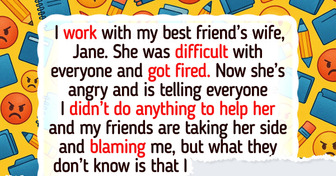
15 Stories That Prove Some Memories Are Impossible to Delete

I Refuse to Help My Pregnant Sister, and I Don’t Feel Guilty

I Refuse to Return My Late Colleague’s Paycheck, Now His Widow Is Furious

My MIL Tried to Humiliate Me at the Altar—By Morning, She Wasn’t Laughing

My Manager Tried to Destroy My Career but a Work Argument Showed Them the Truth

I Charged My MIL for Christmas Dinner, Even Though She’s Always Helped Us for Free

I Won’t Sacrifice My Last Good Years Because My Son Refuses to Grow Up
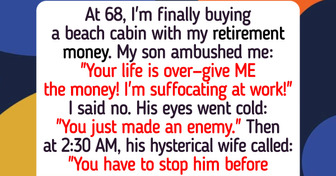
I Turned Down a Promotion and Got Fired—My Revenge Was Brutal

20+ Moments That Prove Quiet Kindness Is the Only Language Everyone Speaks
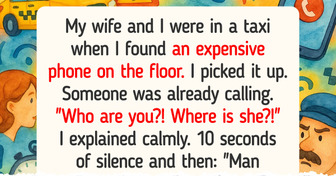
10 Hospital Workers Who Prove Kind Heart Is a Powerful Medicine

